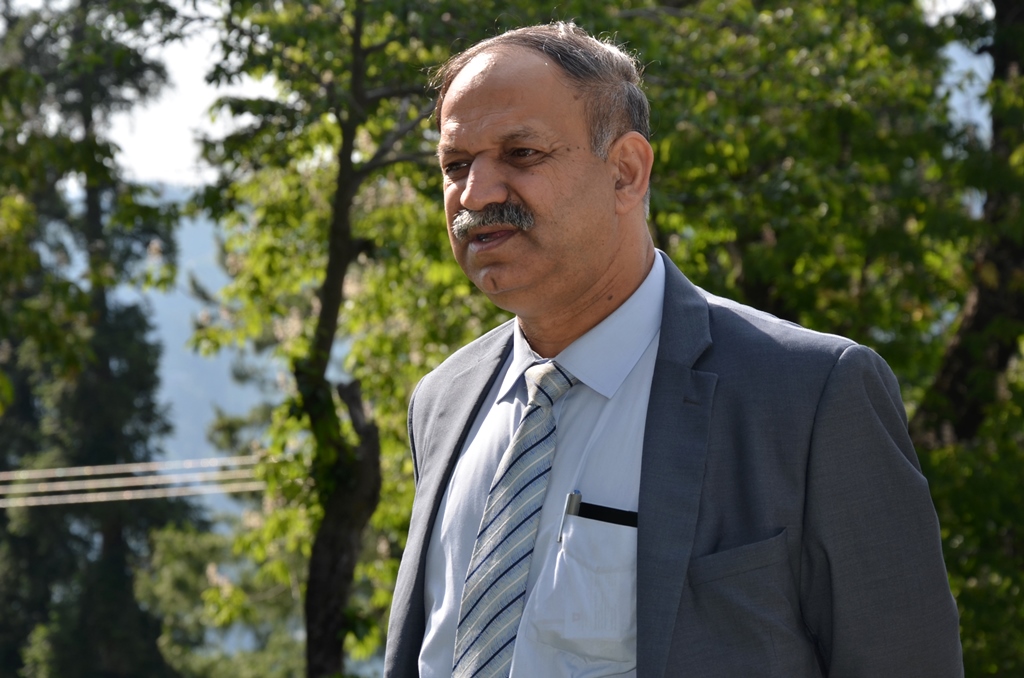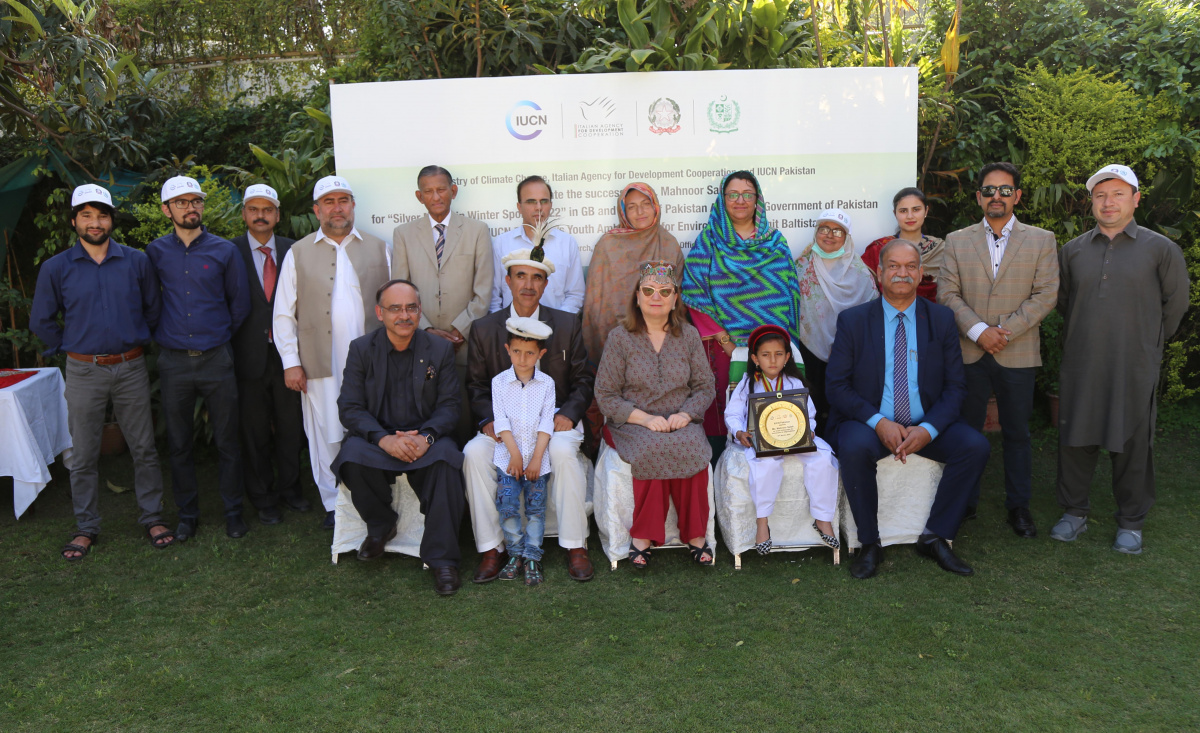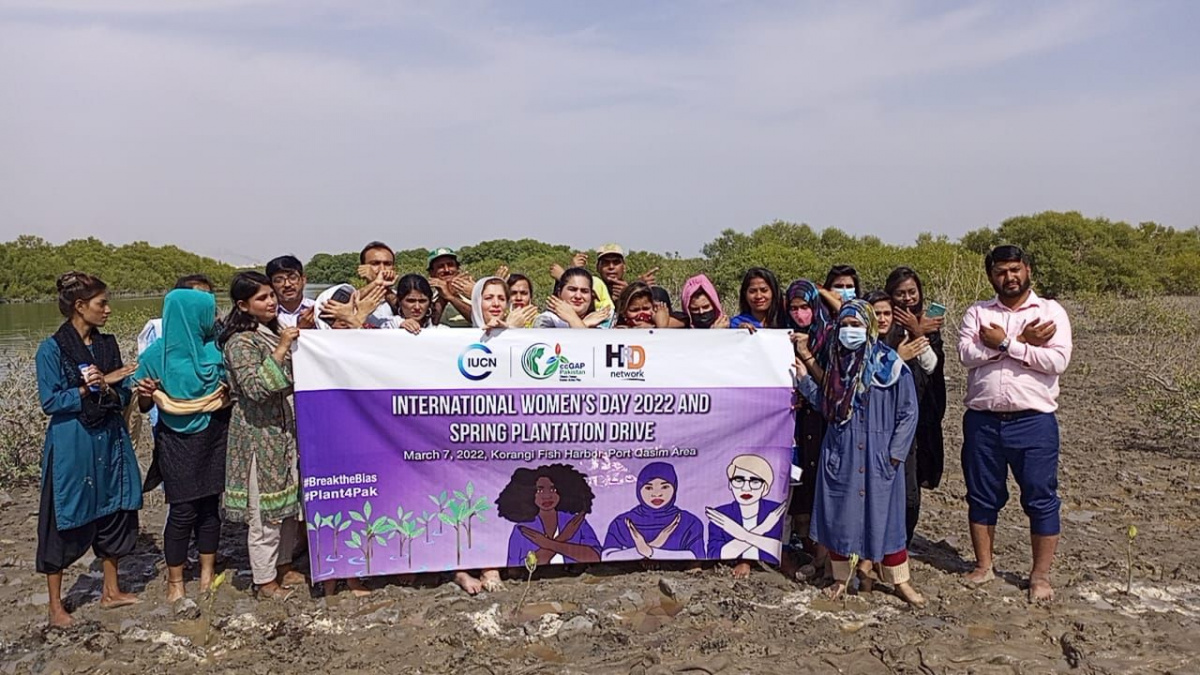Message by Mahmood Akhtar Cheema, Country Representative IUCN Pakistan
Today is the International Day for Biological Diversity Day, being celebrated all over the world to highlight the significance of the Biological Diversity on earth. The theme for the year 2019 is “Our Biodiversity, Our Food, Our Health”. The theme conveys a strong message as how biodiversity is linked to our food and our health. The health and well-being of all the creatures on earth rely on each other, thus it is important that we protect the biodiversity in order to secure our existence on earth.
Pakistan is amongst the very few countries that host 10 agro-ecological zones and has abundant natural resources. But due to growing population, degrading of ecosystems and receding water resources our natural resources are depleting very fast.
Since IUCN established its offices in Pakistan, it has been the lead institution in conservation and protection of the biodiversity in Pakistan. It has been facilitating the federal and provincial governments in meeting their international commitments. Recently, on the request of the Government of Khyber Pakhtunkhwa, IUCN has completed a study on the Billion Tree Afforestation Project assessing the Impact of the project on Biodiversity. The Billion Tree Afforestation project attaches special importance to biodiversity conservation under its objectives. The project puts special focus on biodiversity conservation and management to achieve Aichi targets, by encouraging natural and indigenous vegetation cover.
The report also assesses the contributions of the project to the UN Sustainable Development Goals, Convention on Biological Diversity and the Aichi Biodiversity targets. It also highlights the accomplishments of the project in terms of contributions of the BTAP to the goals, objectives and targets under the above-mentioned instruments.
IUCN Pakistan had also been instrumental in getting Astola declared as Pakistan’s first Marine Protected Area.. IUCN Pakistan facilitated the process of bringing together all the stakeholders that included: the Ministry of Pakistan; Government of Balochistan; Pakistan Navy; National Institute of Oceanography; WWF-Pakistan; Indus Earth Trust; and Sindh Forest and Wildlife Department.
In the year 2000, IUCN Pakistan has the privilege of being the main partner of the then Ministry of Environment for developing the first Biodiversity Action Plan for Pakistan which was an important milestone and a major step towards conservation of Biodiversity in the country.
The Government of Pakistan assigned IUCN Pakistan with a task for aligning the National Action Programme (NAP) to Combat Desertification in Pakistan with the 10-year Strategy of the United Nations Convention to Combat Desertification. The process of developing NAP was led by IUCN Pakistan which involved engaging key stakeholders at the federal and provincial levels. IUCN has also been instrumental in developing the Pakistan National and Provincial Biodiversity Strategies and Action Plans for achieving Aichi Biodiversity Targets and Sustainable Development Goals
In the year 2010 in collaboration with the Forest and Wildlife Department, Government of Balochistan, IUCN Pakistan initiated the process of designating the Juniper Forest Ecosystem as UNESCO’s Man and the Biosphere Reserves. The designating process was led by IUCN Pakistan under its UNDP funded project titled: Mainstreaming Biodiversity Conservation into the Juniper Forest Ecosystem Production with UNESCO Pakistan’s financial support under One UN Programme in consultation with all the stakeholders, local communities and other relevant government departments.
In the past some of the successfully implemented programmes and projects of Pakistan for conserving the Biodiversity in Pakistan include: Conservation green turtles along Pakistan’s coasts; conserving vanishing vultures in Tharparkar; conservation of fresh water turtles and the Mountain Areas renowned trophy hunting programme which helped in increasing the dwindling population of Markhor in Pakistan. It also worked to benefit the local communities through promotion of herbal and medicinal plants.
Keeping in view the theme for the year “Our Biodiversity, Our Food, Our Health, we need to send out a strong message that our health, our food and our wellbeing totally rely on well preserved Biodiversity. If the biodiversity is threatened, similarly the existence of human beings and animals will be at stake, so being the custodians of the earth human-beings have a major role in conserving and protecting the Biodiversity on this earth.
The National Biodiversity and Action Plan (NBSAP) is one of the recent undertakings by IUCN Pakistan. Pakistan was among the 150 countries that signed the Convention on Biological Diversity at the 1992 Rio Earth Summit, and ratified it in 1994 and was therefore obliged to implement the requirements of the Convention. IUCN Pakistan was requested to prepare the fifth National Report to CBD and revised the NBSAP. The convention required countries to prepare NBSAPs for the federal and provincial governments. The National Biodiversity Strategies and Action Plans (NBSAPs) are the principal instruments for implementing the Convention at the national and provincial levels.
Pakistan’s Sixth National Report to the United Nations Convention on Biological Diversity has been prepared by IUCN Pakistan in line with Aichi Biodiversity Targets (ABT) 2011-2020 and Sustainable Development Goals (SDGs) 2030 to meet the national as well as global commitment to implement the objectives of UN Convention on Biological Diversity (CBD). The report reflects the progress made by Pakistan on the Biodiversity since the last report. Pakistan is a signatory to the United Nation’s Convention on Biological Diversity and hence regularly reports the progress on the conservation of the Biodiversity.
The IUCN World Conservation Congress 2020 is being held from 11 to 19 June 2020 in Marseille, France. The Congress aims to improve how we manage our natural environment for human, social and economic development, but this cannot be achieved by conservationists alone. It will also provide a platform to the governmental institutes and NGOs for decisions that will shape the decisions at the Convention of Biological Diversity – COP 15 in China.
The Fifteenth Meeting of the Conference of the Parties to the Convention on Biological Diversity (COP15) will be hosted by China in 2020 it will provide an opportunity to Pakistan to showcase its milestones covered towards achieving the CBD goals. It will also provide a platform for learning from the best practices applied in other countries.
IUCN has been in discussion with Governments of China and Pakistan to ensure environmental safeguards along CPEC. In this regard, IUCN has hosted numerous meetings and delegations from China who have shared their expertise to further the cause of sustainable development in CPEC.
Business and Biodiversity Platform is a promising initiative meant to encourage businesses to invest in ecosystems and sustainable development. IUCN under its BBP planted one million mangroves along the Karachi coast in 2018 and another initiative is in the offing.
Thank you.




